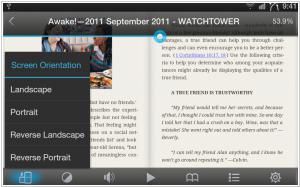FBReader vs Moon Reader
Last updated: October 21, 2023
FBReader and Moon Reader are both popular eReader apps for Android devices, but they have distinct differences in terms of their features, customization options, and user interface.
1. Features and Customization: FBReader is known for its simplicity and lightweight design. It offers a clean and minimalistic user interface, focusing on providing a distraction-free reading experience. FBReader supports various eBook formats and provides essential features such as adjustable font sizes, font types, and line spacing. It also offers basic customization options for adjusting brightness and background colors. Moon Reader, on the other hand, offers a more feature-rich experience. It provides extensive customization options, including a wide range of visual themes, fonts, and font sizes. Moon Reader also offers advanced features like text-to-speech, auto-scrolling, and gesture controls for navigation. Additionally, Moon Reader supports additional features such as annotations, dictionary integration, and the ability to add notes and highlights to eBooks.
2. User Interface and Design: FBReader features a minimalist and straightforward user interface. It provides a clean reading environment with simple navigation controls, making it easy to navigate through eBooks. FBReader emphasizes ease of use and a clutter-free reading experience. Moon Reader, on the other hand, offers a more visually appealing and customizable interface. It provides various themes, allowing users to choose different color schemes and backgrounds. Moon Reader also offers options for customizing the appearance of page-turning animations and navigation buttons. The user interface of Moon Reader aims to provide a visually engaging reading experience with options for personalization.
3. Additional Features and Integration: FBReader focuses primarily on providing a lightweight and efficient reading experience. While it may not offer an extensive range of additional features, FBReader provides integration with various online libraries and catalogs, allowing users to access a wide range of free eBooks. FBReader also supports integration with popular eBook platforms like Feedbooks and Smashwords. Moon Reader, on the other hand, offers advanced features and extensive integration options. It provides support for online bookstores and integration with eBook platforms like Dropbox and Google Drive. Moon Reader also offers synchronization capabilities, allowing users to sync reading progress and book settings across multiple devices.
1. Features and Customization: FBReader is known for its simplicity and lightweight design. It offers a clean and minimalistic user interface, focusing on providing a distraction-free reading experience. FBReader supports various eBook formats and provides essential features such as adjustable font sizes, font types, and line spacing. It also offers basic customization options for adjusting brightness and background colors. Moon Reader, on the other hand, offers a more feature-rich experience. It provides extensive customization options, including a wide range of visual themes, fonts, and font sizes. Moon Reader also offers advanced features like text-to-speech, auto-scrolling, and gesture controls for navigation. Additionally, Moon Reader supports additional features such as annotations, dictionary integration, and the ability to add notes and highlights to eBooks.
2. User Interface and Design: FBReader features a minimalist and straightforward user interface. It provides a clean reading environment with simple navigation controls, making it easy to navigate through eBooks. FBReader emphasizes ease of use and a clutter-free reading experience. Moon Reader, on the other hand, offers a more visually appealing and customizable interface. It provides various themes, allowing users to choose different color schemes and backgrounds. Moon Reader also offers options for customizing the appearance of page-turning animations and navigation buttons. The user interface of Moon Reader aims to provide a visually engaging reading experience with options for personalization.
3. Additional Features and Integration: FBReader focuses primarily on providing a lightweight and efficient reading experience. While it may not offer an extensive range of additional features, FBReader provides integration with various online libraries and catalogs, allowing users to access a wide range of free eBooks. FBReader also supports integration with popular eBook platforms like Feedbooks and Smashwords. Moon Reader, on the other hand, offers advanced features and extensive integration options. It provides support for online bookstores and integration with eBook platforms like Dropbox and Google Drive. Moon Reader also offers synchronization capabilities, allowing users to sync reading progress and book settings across multiple devices.
44
FBReader is an free eBook reader that supports numerous file formats like ePub, fb2, plucker, HTML, plain text, doc and more. You can also add multiple books at once in an archived format (tar, zip, gzip, bzip2). It supports embedded images, footnotes, hyperlinks, text search and full screen reading. It also has automatic bookmarking so that you don’t lose your place when closing a book.
37
Read tens of thousands of books for free, supports multiple online book sites. Read local books for nice experience with real-time smooth scroll and tons of innovation functions. Supports txt, html, epub, pdf, mobi, umd, fb2, chm, cbr, cbz, rar, zip or OPDS
FBReader vs Moon Reader in our news:
2024. FBReader for Android improves ePub support
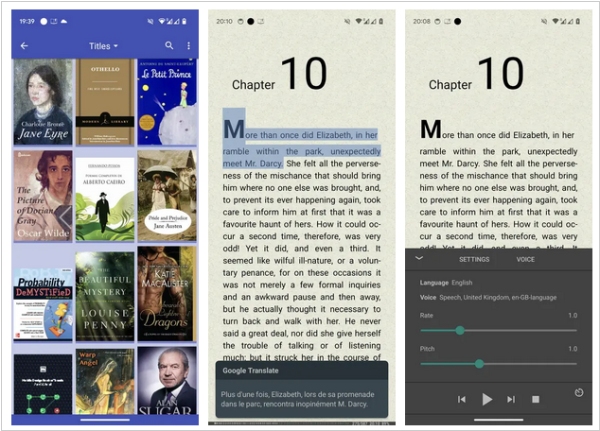
The new version of the popular reading app FBReader for Android 4.0 brings a significant change to the reader core. The developers have replaced the obsolete zip archive support with the modern libzip library. That means some ePub (and other zip files) that were not openable by FBReader will work now. On the other hand, any change in the core is potentially dangerous. Please report if you found some crashes or slowdowns with this release. Other new features include new appearance option: “Neglect screen notches”. It is helpful for devices with a wrongly detected notch, e.g., if the front camera is hidden under the screen. The app stores the correct reading per cent now. Reading progress will be shown correctly in the library. However, you have to open a book with the wrong indicator to fix it. The footer is visible over the reading-aloud panel. You can optionally switch to the old behaviour.
2023. Moon+ Reader adds new E INK mode
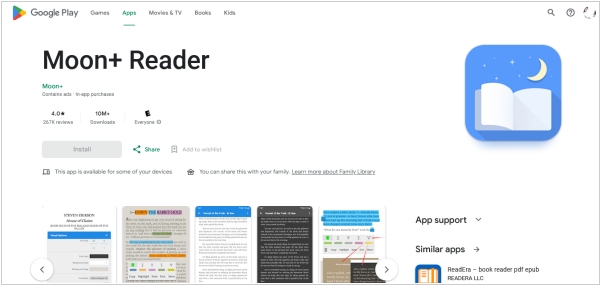
Moon+ Reader, one of the most widely used e-reading applications, has introduced the E INK mode, tailored specifically for Android e-readers from prominent companies like Hisense, Onyx Boox, and iReader, among others. Its major highlight lies in the absence of animations; there are no animated page-turns or dynamic transitions when navigating menus, dialogues, activities, or shelves. Additionally, it transforms the background to a pristine white and the text to a deep black, enhancing the reading experience. A notable feature of Moon+ Reader is the option to map volume buttons on your e-reader as page-turn buttons, offering added convenience. The app is free to download on Google Play and is designed for sideloading ebooks. It seamlessly integrates with platforms such as Project Gutenberg, Dropbox, Whatsapp, and Many Books, simplifying the process of downloading free ebooks directly within the app. Furthermore, Moon+ Reader can import books from your collection stored on an SD card, a feature compatible with many e-readers.
2023. Moon+ Reader v8.1 adds new design options
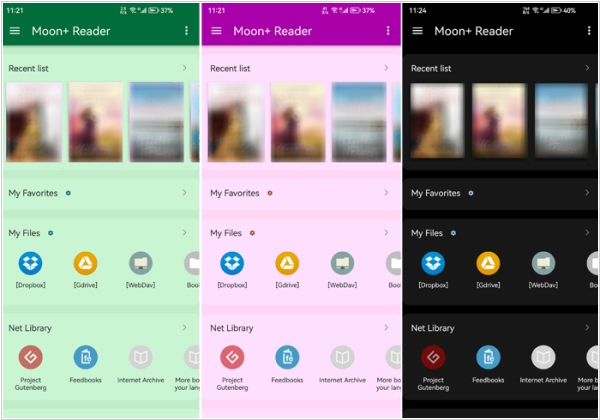
Popular e-reading app for Android Moon+ Reader has released a new version v8.1, which adds new design options: New Material You Dynamic Theme & Amoled Pure Black Theme. Moon+ Reader allows to read books for free, supports multiple online book sites. You can read local books for nice experience with real-time smooth scroll and tons of innovation functions. Support txt, html, epub, pdf, djvu, mobi, azw/azw3, fb2, prc, docx, odt, rtf, umd, chm, cbr, cbz, md(MarkDown), mht/mhtml, webp, rar, zip or OPDS. Provides different visual options: line space, font scale, bold, italic, shadow, alpha colors, fading edge etc.
2022. FBReader starts a new cycle of Android updates
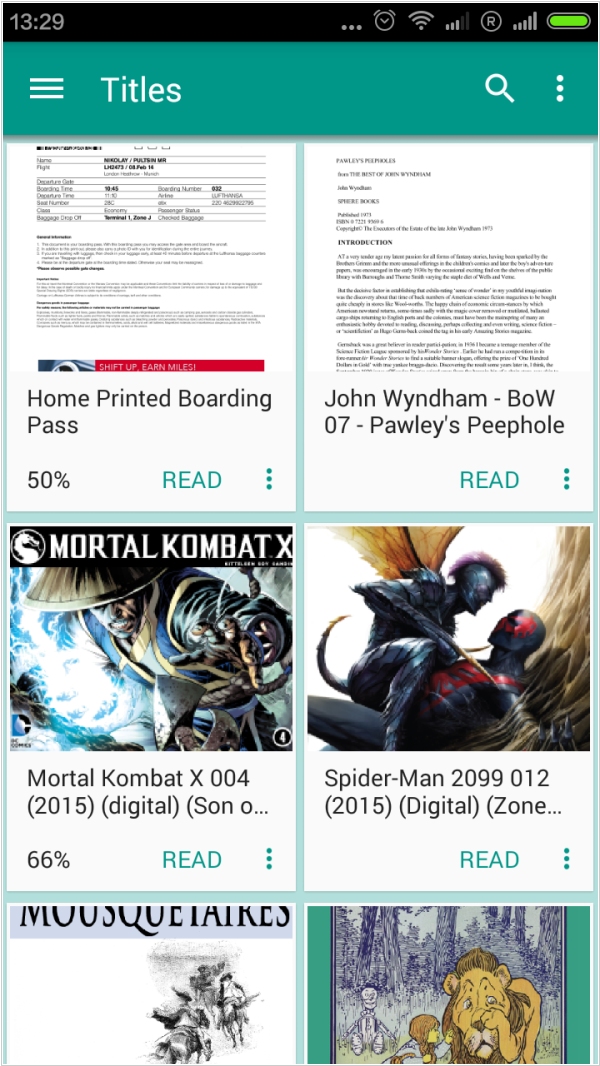
FBReader has recently launched its first Android update since April 2021, introducing version 3.1 and commencing a new cycle of Android enhancements. This release incorporates several notable features. FBReader now has permission to access the filesystem on devices running Android 11 and higher. Additionally, the Premium Edition has restored access to all TTS (Text-to-Speech) engines. The update also implements support for new bookmark styles introduced via the desktop version, although it is not possible to add or remove styles on a mobile device. Furthermore, buttons are now visible in all dialogues, and the broken Yandex Translator has been replaced with DeepL. Finally, the issue of incompatible cache has been resolved, eliminating the need to reopen the current book.
2022. FBReader for Mac is out
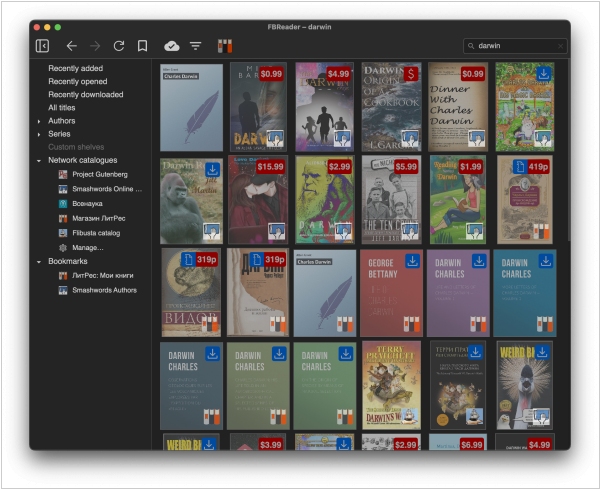
Popular ebook reader FBReader 2.0 for Mac can now be found on the Mac App Store, expanding its availability to three major desktop operating systems: Mac OS, Windows, and Linux. The reading mode and library view, including cloud sync, are mostly complete. FBReader supports a wide range of book formats, such as ePub, fb2, fb2.zip, mobi, rtf, MS doc, plain text, and cbz. The rendering engine is equipped with CSS styles, hyperlinks, hyphenation, page headers and footers, text selection, page turning, and text scrolling in two-column mode. Additional features include a table of contents, bookmarks, language selection, advanced text navigation, and a dark theme. Furthermore, FBReader offers a multi-book (multi-window) mode.
2022. FBReader comes back to Windows
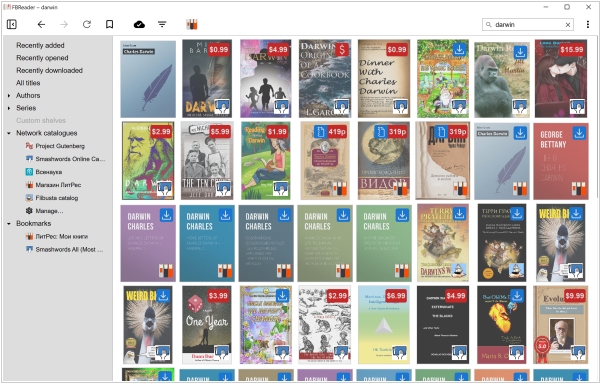
After an eight-year hiatus, FBReader makes its return to Windows. The latest release, FBReader 2.0, incorporates most of the features found in the iOS and Android versions, with a specific focus on desktops and laptops. The app is compatible with Windows 10 (build 17763 and higher) as well as Windows 11. Currently, FBReader is exclusively available for the Intel 64-bit architecture, but it can also function on Windows 11 Arm64 through emulation. Unfortunately, the app does not support Windows 10 Arm. FBReader 2.0 introduces a revamped interface, offering both light and dark themes. Additionally, it includes Ukrainian interface localization. The new render-engine utilizes CSS-defined colors, which can be disabled through the preferences settings. Users can find bookmark style options within the preferences dialogue. Furthermore, there is a new feature that allows the toolbar to be hidden in fullscreen mode. In the dark mode, the app automatically decreases the brightness of images. The developers have also added an "Import multiple files" menu item in the library window.
2019. Moon+ Reader Pro v5.0 adds support for multiple ebook formats
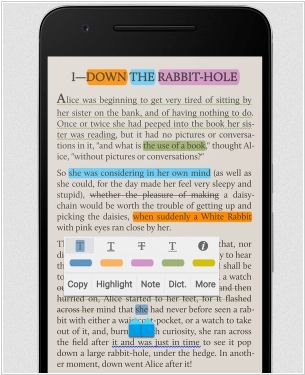
The highly regarded ebook reader app for Android, Moon Reader, has undergone a significant update for its premium version, Moon+ Reader Pro v5.0. This update includes a rebuilt app engine specifically designed for 64-Bit architecture. Furthermore, the PDF and MOBI reading engines have been updated to enhance performance. The update also introduces support for various new ebook formats, such as DJVU, AZW3, PRC, DOCX, ODT, RTF, along with compatibility for WEBP images and TTC/OTF fonts. Additionally, the app has made notable improvements in areas such as Hyphenation alignment, CJK text alignment, and Hindi/Marathi/Telugu alignment. Users will also notice the addition of a new Status bar at the top and the availability of a new open book animation option.
2017. FBReader adds iOS app

FBReader, a highly popular ebook reader available for Android and desktop, has recently launched its app for iPhone and iPad. The iOS version of the app utilizes the same engine as the FBReader app on other platforms and offers support for the same range of text formats. The primary supported formats include ePub, fb2 (including fb2.zip), and mobi (also known as Kindle azw3). Additionally, the reader is capable of opening HTML, RTF, MS Word documents (*.doc), and plain text files. However, it currently does not support "non-text formats" such as PDF, DjVu, and comics. The free version of FBReader for iOS does come with certain limitations, such as a maximum library size of ten books and disabled online translators. To access the full range of features, users have the option to upgrade to the paid version for a fee.


